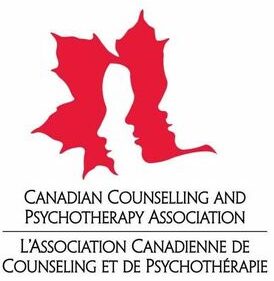ACT Therapy #2 – Acceptance

This is part 2 in my series of blog posts about Acceptance and Commitment Therapy (ACT). In previous posts I have given a general overview (see here) and then talked about the first piece of the ACT puzzle, which is getting present (see here).
In this article I’m going to address the ACT point of acceptance, which may be the most important to write about, because it is both most misunderstood, and most crucial. Every single day at the office I find that I am needing to clarify what this really means. Many people have an aversion to the word acceptance. When we talk about our emotional pain, often the last thing that we want to hear is some variation of “just accept it”. When we commonly use it, it can be synonymous with ideas like “giving up” or resignation. But that is not what we are talking about here. As is clarified by other ACT researchers, in this model acceptance is the same as ‘willingness’ (see Learning ACT by Luoma, Hayes, Walser, New Harbinger, 2007).
This is not about giving up, it is about being willing to work with what is given to us. As the saying goes, if life gives you lemons, make lemonade. In life, most people fight their emotions, their environment, their moods and thoughts, and apply endless attempts to control their experience which fail repeatedly and leave people with even more of what they are trying not to have: sadness, stress, anger and despair.
In ACT, we simply acknowledge all the ways that we are trying to push away our actual experience and notice how useless that is. As we let go of the resistance, we can learn skills to make room for difficult emotions and thoughts. And when we can do this, we free ourselves. We do this not to give up, but because it is simply less painful and more workable to open to our internal pain, then to fight against it.
Our attempt to control our experience ends up controlling our lives.
When we can be willing to see and be with our pain, and drop the fight against it, we can learn from it, we can be less controlled by it, and we can free huge amounts of energy that can be available for us to lean into the things in our life that really do fulfil us and give us meaning.
Check it out for yourself. Notice that if you are feeling bad about something, you tend to try to get rid of it or change it in some way. We distract, avoid, numb out, ignore. And maybe some of those things actually just make it worse. What happens right now if you just notice the stress that is in you (or sadness, grief, anger) and say to yourself “Ok, this feeling is welcome to be here for as long as it needs to.” This is a strange shift for most of us. We are wired and trained by our culture to feel like we must get rid of our “negative” feelings. But honest experience will show you that this just makes things worse.
Your pain is like a wounded child, knocking at your door. We often bolt it shut, and push against it for years and years. But that child has a gift for you – a gift of healing and insight – and you will never know what it is while you bar it from entry into your life.
None of us want pain in our lives. But none of us is exempt from having some. The wisest thing to do with it is open to it, let it process through your body, and not waste our energy and time telling ourselves that it “shouldn’t be there”.
It is there. Sadness shows up sometimes. Storms appear in life. Loss happens. And whatever is here and now in your experience, if you can be truly willing to open up to it, will become a fulcrum for your freedom, rather than a confining door.
Developing acceptance is a skill that takes time to learn and master. After all, we are hardwired for the opposite. In therapy, we can practice and learn methods that can re-train our minds and bodies to be more open to what is going on inside of us and to flow with it. If you have willingness to just see that some of what you’ve been doing has not been really working to get you what want, then maybe you will be willing to try something different – and then the real work and the real fun of growth can begin!







Comments are closed.